Pere Ubu - A Self-Indulgent Reflection on David Thomas
by Mark Rowland
published: 17 / 8 / 2025
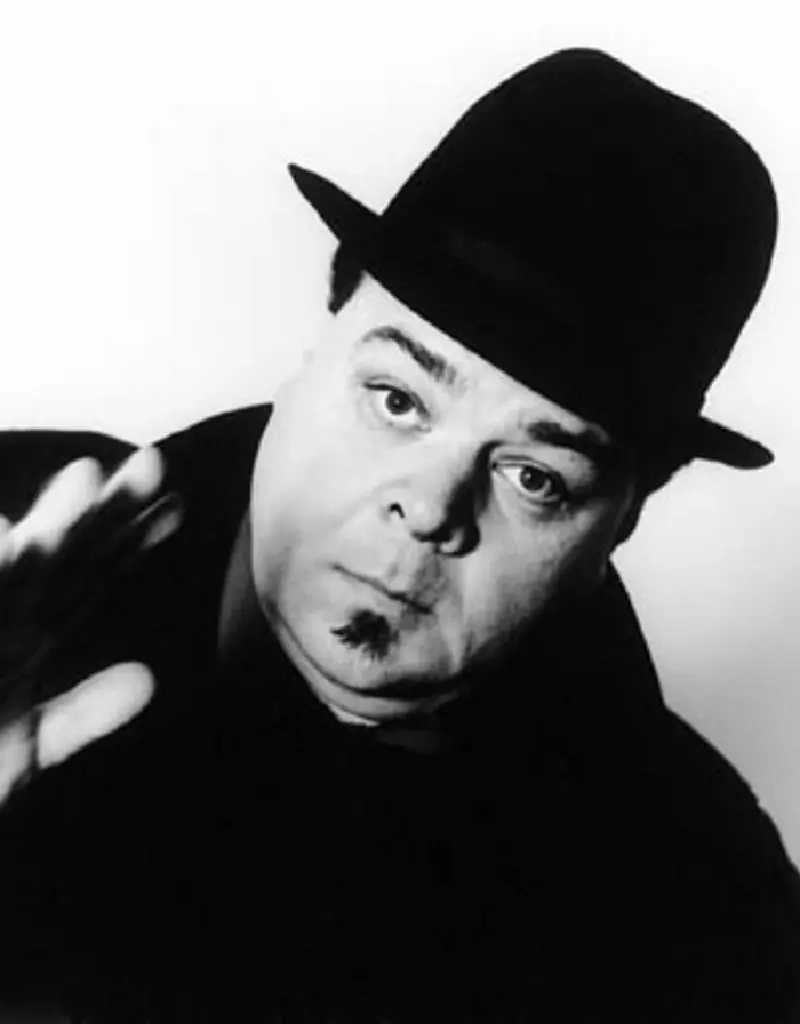
intro
Mark Rowland reflects on four interviews with Pere Ubu’s notoriously cranky frontman David Thomas, who died in April.
David Thomas, frontman and creative force behind Pere Ubu and side bands such as Two Pale Boys and The Wooden Birds, could be a difficult interviewee. During my time as a journalist, I interviewed David four times, and I never quite knew what response I’d get from moment to moment. I remember David responding to my questions with weary sighs, cantankerous bluntness, measured reflection, outright enthusiasm, and occasionally indignant irritation. He was, as he was quite happy to declare, not afraid to offend anyone. It’s been a long time since my last interview with David – more than a decade. In that time, I’ve moved house, become a father twice over, started my own business. But I have, whenever I listened to David’s music or saw him interviewed elsewhere, felt a lot of regret that I wasn’t able to keep our professional acquaintance alive. David was slightly unpredictable and had little time for nonsense, but he was, if you gave him the time, a great conversationalist, and I look back on my chats with him fondly. When I read that he’d died, I mourned the loss of a singular, brilliant artist, a man that ploughed his own furrow and shaped post-punk before it was really a thing. A man that made whatever music that felt right to him at the time, regardless of trends. Who tried, and ultimately failed, to change the trajectory of digital music (I would have loved to speak with him about his thoughts of the streaming era). But I also mourned the loss of a person that I knew (in my limited capacity) and admired. I was sad that I’d never get the chance to speak with him one more time, and potentially end things on a better note. Pere Ubu are, in many ways, an underrated band, considering their place in music history. Without really meaning to, they were a pioneer of post-punk, forming just as punk was getting going. The deconstructed garage rock of debut album ‘The Modern Dance’ paved the way for bands such as Gang of Four, Sonic Youth, Joy Division, and later bands such as Pixies. Despite this, Pere Ubu are rarely mentioned with the same reverence as those bands. But for those in the know, they were seminal. Their initial run ended in 1982, but the band reformed in the late 80s, reemerging with ‘The Tenement Year’ and putting records out consistently from that point onwards, the last album being ‘Trouble on Big Beat Street’ in 2023. I say that David was a difficult interviewee, but reading back my interviews with him, those moments are fairly sparse. I first interviewed him in 2006, about the reissues of Pere Ubu’s debut ‘The Modern Dance’. I use fewer quotes from David in that first piece. I remember his trademark snarky delivery of quotes like: “We didn't sit there and say to ourselves, ‘Gee, we're doing something original.’” The fact that I’d been sparing with my quotes from David suggests that there may have been a lot of less usable material from our first encounter, but equally, I may have just wanted to tell the story as efficiently as possible. Either way, I remember feeling like I’d survived it afterwards, and I’ve always thought of that conversation as being a bit tricky, but it was so long ago that I don’t know how much I can trust my memory. My second interview with David, back in 2008, was warmer, or at least gradually warmed up. I was interviewing him about Hearpen, his high quality digital music platform, and the rarities that he’d released from it. There are signs of his trademark bluntness. Responding somewhat clumsily to the tale of a neighbour of his parents that committed suicide, I said: “That’s certainly memorable.” “Well, yeah good. My parents weren't too happy about it, but there you go,” David responded. Later on in the interview, I asked him about his thoughts on Hove, where he lived, and whether it had inspired anything in his work. “I don't know. I don't pay attention to it. I just live here. It doesn't mean anything to me,” he said. But generally, David’s more reflective side comes across quite strongly. I would say that I was better prepared for the conversation, but really I think David was just more in the mood to chat. Even the Hove conversation opened up to become more about cultural appropriation and how your view as an outsider can distort your perceptions of a place. He spoke very eloquently about how stories from real life were incorporated into songwriting. I particularly like this quote, when David was talking about how people respond to music: “You present the listener with a collection of sounds, sometimes incongruous, sometimes parallel, sometimes at crossed purposes to what you're intending. It's Pavlovian. You present a sound to a listener and the listener has to create sense out of it. It's not something they sit there and try to decide. You know, shall I make sense out of it. It's Pavlovian. The bell rings and you salivate. The sound happens and you have to try to put it in context.” I interviewed him again the following year, about ‘Long Live Pere Ubu’, which was a musical adaptation of ‘Bring Me the Head of Ubu Roi’, the Alfred Jarry play that Pere Ubu derived its name from. I’d reviewed ‘Long Live Pere Ubu’ positively before speaking with him, and he’d obviously enjoyed it; he was brimming with enthusiasm for the conversation. I remember him complimenting me for recognising the ‘punk rock’ elements in ‘...Ubu Roi’ (despite telling others that he detested the term ‘punk rock’). I think it was also a reflection of his satisfaction with the album itself; it was clear that he was incredibly proud of it. His answers in this interview are long and completely free of blunt retorts. He is extremely thorough and detailed about the creation of the project, how they developed and recorded it, and what he wants to do with it next. He laughs several times throughout the conversation. One of the things that he got into, in his enthusiasm for the project, was his persona as a performance, giving us a little peek behind the curtain. It was part of the act, at least to an extent: “How are you going to do 'Ubu Roi' in the year 2009? It doesn’t have the same resonance. You’re not going to get people all a-flutter because you say shit in a cute way, or because it’s so critical of sacred cows. So how do you do it? Well, strangely enough, the answer coincides with our production methods, which is generally you try to scare the damn audience. You want an audience that believes that the whole thing could fall apart at any point and that I could get upset about something totally trivial and pull the band off the stage. Which we’ve done from time to time – I’ve taken the band off the stage and said: ‘We’ll be back in 15 minutes,’ and the audience are going, ‘Shit, what just happened?’” At a show in Blackheath supporting this tour (which was great) I finally managed to meet David. We had a short but very warm conversation. I felt, perhaps naïvely, that we were on friendly terms, and looked forward to the next time I’d get to interview him. That came in 2012, around the release of ‘The Lady from Shanghai’. In my head, I remember screwing this one up, with one very throwaway comment. I described something as “a bit shoegazey”, to which David replied, indignantly: “Shoegazey?! What the hell do you mean by that?” or something along those lines. I mumbled out an explanation; that it was a silly shorthand for a certain style of rock music, but he genuinely seemed put out by it, and the conversation was not quite the same, afterwards. This will probably sound ridiculous, but for years, I felt like that ruined whatever mutual warmth we’d built up over those few years, and that David had never wanted to speak to me again after that point. But again, reading the piece back, we obviously had a decent conversation for the most part. We got into social politics, the right of people to offend and the creative stagnation of modern music. I wonder how much his opinion moved on in the intervening thirteen years. It’s fair to say that perhaps the ending of our professional correspondence sits as much, or more, on my shoulders, as my day job became busier and I found less time to write for Pennyblackmusic. Either way, I wish I’d had another chance to speak to him. He was one of my favourite people that I’ve spoken to during my shadow career as a music journalist. This piece is, undoubtedly, self-indulgent, and I doubt David would approve. But, if I could channel his spirit for a moment: he’s dead, and I’m not. So I reserve the right to offend him. Rest in peace, you brilliant man.
Band Links:-
http://www.ubuprojex.com/https://en-gb.facebook.com/official.ubu/
https://twitter.com/ubuprojex
https://en.wikipedia.org/wiki/Pere_Ubu
Play in YouTube:-
interviews |
|
Interview (2017) |
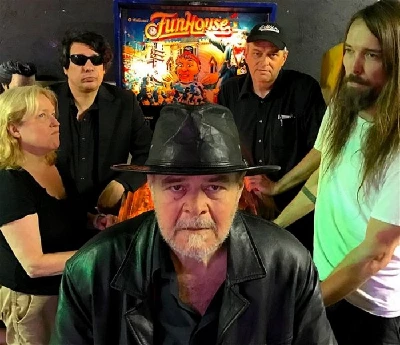
|
| Erick Mertz talks to David Thomas, the front man with influential alternative rock act Pere Ubu, about his group's experimental new album, ‘20 Years in a Montana Missile Silo’. |
| Interview (2012) |
| Interview (2009) |
| Interview (2008) |
| Interview with David Thomas (2006) |
| Interview with David Thomas (2005) |
| Interview with David Thomas (2004) |
| Interview (2004) |
live reviews |
|
Musician, Leicester, 12/11/2014 |
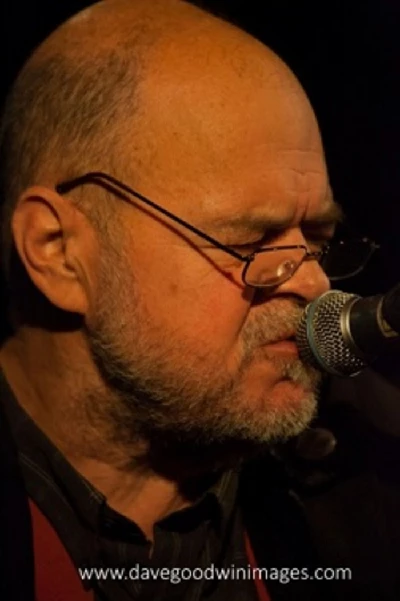
|
| Dave Goodwin at the Musician in Leicester watches Peru Ubu play a confrontational yet brilliant double set of experimental rock |
| Blackheath Halls, London, 27/2/2010 |
| Islington Academy, London, 18/9/2005 |
favourite album |
|
The Modern Dance (2006) |
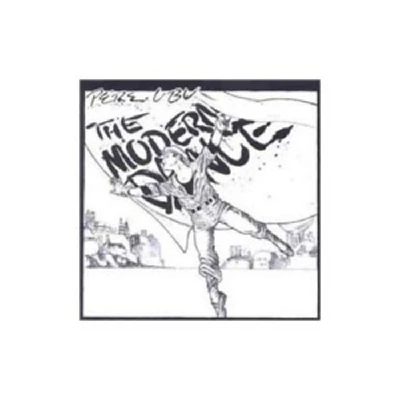
|
| For our 'Re : View' slot, in which we look back on old albums, Mark Rowland writes about Pere Ubu's 1976 classic debut album 'The Modern Dance', which has recently been reisssued |
| Dub Housing (2002) |
reviews |
|
Lady From Shanghai (2013) |
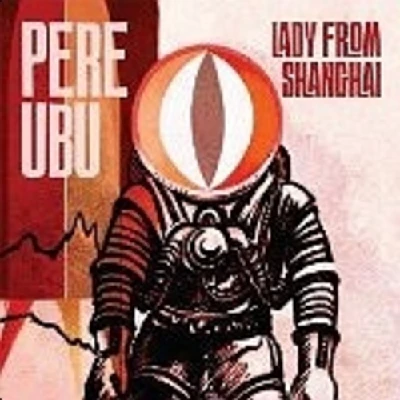
|
| Complex, but compelling fourteenth album from Cleveland avant-garde rockers, Pere Ubu |
| Long Live Pere Ubu (2009) |
| Why I Hate Women (2006) |
| St Arkansas (2005) |
most viewed articles
current edition
Carl Ewens - David Bowie 1964 to 1982 On Track: Every Album, Every SongArmory Show - Interview with Richard Jobson
Colin Blunstone - Thalia Hall, Chicago, 16/7/2025
John McKay - Interview
Visor Fest - Valencia, Spain, 26/9/2025...27/9/2025
Bathers - Photoscapes 1
Billie Eilish - O2 Arena, London, 10/7/2025
Loft - Interview
Robert Forster - Interview
Sir Tim Rice - Interview
previous editions
Heavenly - P.U.N.K. Girl EPManic Street Preachers - (Gig of a Lifetime) Millennium Stadium, Cardiff, December 1999
Beautiful South - Ten Songs That Made Me Love...
Oasis - Oasis, Earl's Court, London, 1995
Coldplay - Wembley Arena. London, 16/8/2022
Peter Perrett - In Dreams Begin Responsibilities Interview Part One
Prolapse - Interview
Boomtown Rats - Ten Songs That Made Me Love....
Trudie Myerscough-Harris - Interview
Pixies - Ten Songs That Made Me Love...
most viewed reviews
current edition
Sick Man of Europe - The Sick Man of EuropeDavey Woodward - Mumbo in the Jumbo
Amy Macdonald - Is This What You've Been Waiting For?
Lucy Spraggan - Other Sides of the Moon
Phew, Erika Kobayashi,, Dieter Moebius - Radium Girls
Suzanne Vega - Flying With Angels
Bush - I Beat Loneliness
Blueboy - 2
Alice Cooper - The Revenge of Alice Cooper
Cynthia Erivo - I Forgive You
Pennyblackmusic Regular Contributors
Adrian Janes
Amanda J. Window
Andrew Twambley
Anthony Dhanendran
Benjamin Howarth
Cila Warncke
Daniel Cressey
Darren Aston
Dastardly
Dave Goodwin
Denzil Watson
Dominic B. Simpson
Eoghan Lyng
Fiona Hutchings
Harry Sherriff
Helen Tipping
Jamie Rowland
John Clarkson
Julie Cruickshank
Kimberly Bright
Lisa Torem
Maarten Schiethart